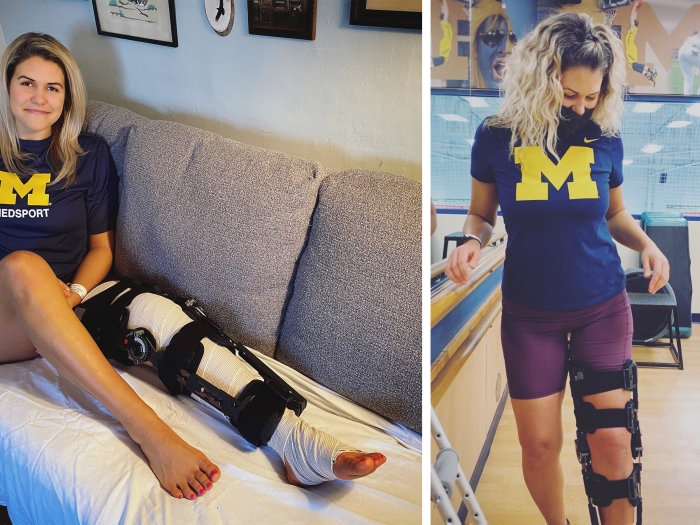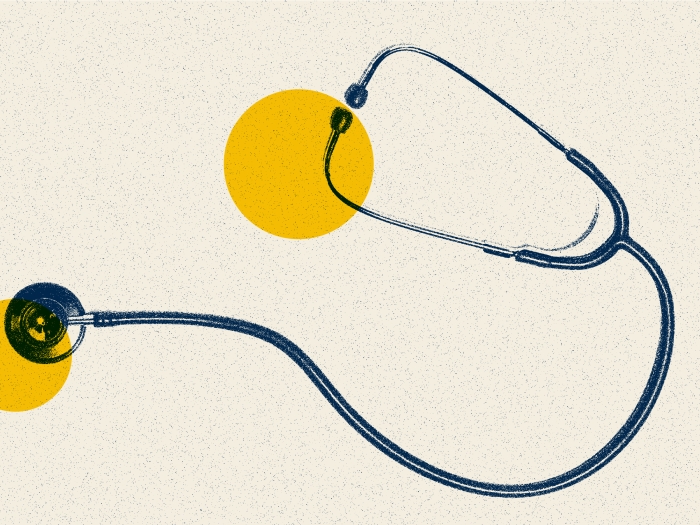Chronic pain can present in multiple forms for multiple sclerosis patients. Some forms make it harder to stay active than others.
1:15 PM
Author |

For patients with multiple sclerosis, a regular exercise routine is important for managing symptoms. Due to different causes of chronic pain though, physical exercise can be more difficult for some.
Research published in the Journal of Pain from the University of Michigan found that widespread pain with nociplastic features, also known as WPNF, can make engaging in physical activity a painful task for some patients with MS.
“WPNF is a chronic and diffuse pain which can be challenging to localize or describe precisely,” said Libak Abou, Ph.D., Research Assistant Professor and lead author of the paper.
“In a person with MS, this type of pain arises from altered processing signals within the central nervous system. This is opposed to pain that arises from specific tissue damage, classified as nociceptive pain, or pain related to demyelination and axonal damage, classified as neuropathic pain.”
Abou and fellow researchers surveyed patients with MS to see if those with a higher indication of WPNF were more likely to be insufficiently active or sedentary when compared to their MS counterparts with no chronic pain, nociceptive pain, or neuropathic pain. Each of the participants was self-reporting with their data.
The results of the survey showed that those who experienced WPNF in addition to their MS were not sufficiently active due to the chronic pain they were experiencing.
“There is a growing need to consider what type of pain MS patients are experiencing before giving them an exercise plan,” said Abou. “The concept of considering WPNF when creating exercise plans for MS is newer but could help many patients get to an activity level that will help ease symptoms without causing them intense pain.”
For the future, Abou hopes that clinicians can begin doing screenings for underlying pain mechanisms in patients with MS that are struggling to stay active to help further tailor their physical routines to their personal needs.
“The end goal is to help those with MS maintain their functional independence,” said Abou. “It is also important to remember that these patients will likely need extra support from their physical therapy team to keep them on a path with less pain.”
Additional authors: Libak Abou, Daniel Whibley, and Anna L. Kratz from the Department of Physical Medicine and Rehabilitation, Michigan Medicine, University of Michigan, Ann Arbor, Michigan as well as the Institute for Healthcare Policy and Innovation, University of Michigan, Ann Arbor, Michigan. Daniel J. Clauw from the Department of Anesthesiology, Michigan Medicine, University of Michigan, Ann Arbor, Michigan.
Paper cited: “Widespread Pain With Nociplastic Features is an Independent Predictor of Low Physical Activity in People with Multiple Sclerosis,” The Journal of Pain. DOI: doi.org//10.1016/j.jpain.2023.09.005
Live your healthiest life: Get tips from top experts weekly. Subscribe to the Health & Wellness newsletter by Health Lab
Headlines from the frontlines: The power of scientific discovery harnessed and delivered to your inbox every week. Subscribe to Health Lab’s Research & Innovation newsletter
Like Podcasts? Add the Michigan Medicine News Break on Spotify, Apple Podcasts or anywhere you listen to podcasts.

Explore a variety of healthcare news & stories by visiting the Health Lab home page for more articles.

Department of Communication at Michigan Medicine
Want top health & research news weekly? Sign up for Health Lab’s newsletters today!





